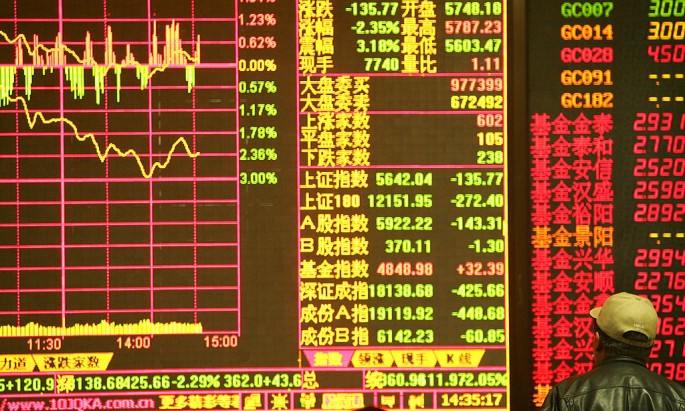Chinese traders welcomed the Year of The Fire Rooster in a muted tone as stocks fell on the back of rising interest rates and U.S. President Donald Trump's controversial policies.
The Shanghai Composite Index was down 0.6 percent to 3,140.170 on the first day since a week-long break. The Hang Seng China Enterprises Index dropped 1.6 percent in Hong Kong, while mainland financial markets were closed for the holidays, and slipped 0.1 percent on Friday, Bloomberg Markets reported.
The People's Bank of China (PBoC) squeezed its monetary policy by increasing interest rates for open-market operations and funds loaned through its Standing Lending Facility (SLF).
The PBoC hiked costs of seven-, 14- and 28-day reverse repurchase agreements by 10 basis points each to 2.35, 2.5 and 2.65 percent, respectively, Bloomberg said in a separate report. This is the first hike in four years for the two short-term agreements, and also the first in two years for the 28-day contracts.
The PBOC has been squeezing its cash supply to reinforce the exchange rate and control its financial leverage.
Similarly, Trump's recent slew of controversial executive orders has intensified concerns over a possible tariff hike on Chinese imported goods. Trump's travel ban and recent statements on alleged currency manipulation have rattled financial markets, leading traders to worry that Trump could push through with his bold campaign promises.
The Bloomberg Dollar Spot Index fell to an 11-week low, following said events.
"Trump has implemented some of his campaign promises very quickly, and he's said he will raise tariffs on Chinese imports to 45 percent," Daniel So, a strategist at CMB International Securities Ltd, told Bloomber. "Now it looks like it might not just be empty talk. But the market may not be scared so soon."
U.S.-China relations have been on the edge following Trump's continues tirade against Beijing. In a 2016 interview, Steve Bannon, said to be the president's "closest advisor," said a war between Washington and Beijing could happen in the next few years.
"We're going to war in the South China Sea in five to ten years, aren't we?" Bannon was quoted as saying in a March 2016 radio interview, per Independent UK's report.
"There's no doubt about that. They're taking their sandbars and making basically stationary aircraft carriers and putting missiles on those. They come here to the United States in front of our face--and you understand how important face is--and say it's an ancient territorial sea."



























